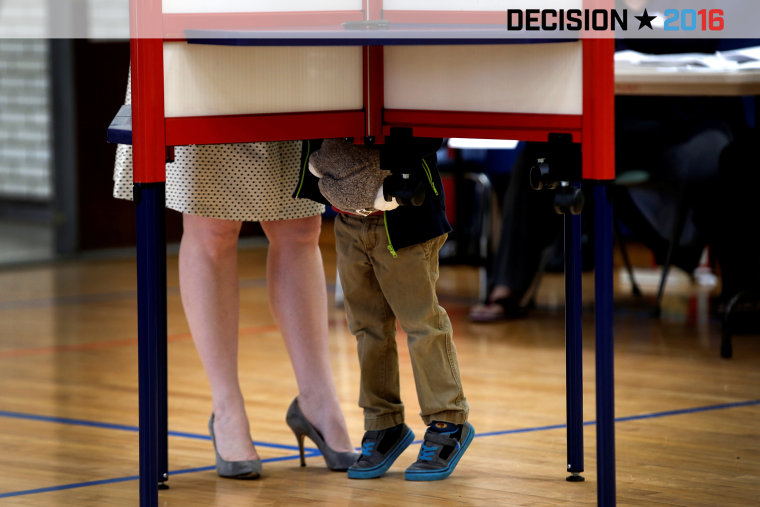Yesterday, entertainer Justin Timberlake did something that seemed rather routine: he took advantage of early voting and cast a ballot in his native Tennessee. In fact, the celebrity took the additional step of encouraging others to follow his example: Timberlake took a "ballot selfie," posted it to Instagram, and urged the public to "choose to have a voice."This, ordinarily, wouldn't be particularly noteworthy, except for the fact that the picture was technically illegal. Though the local district attorney's office said it wouldn't bother wasting resources on the case, it's actually a crime for voters in Tennessee to take a photo like Timberlake's.Indeed, the entertainer took down the photo after it caused a minor legal stir.And while I generally avoid celebrity news, the hubbub got me thinking about the underlying constitutional question and the reason half of the nation's states passed laws prohibiting ballot selfies. Why in the world would anyone care whether or not someone takes a picture of themselves and the ballot?As it turns out, there is a reason.
Mother Jones' Kevin Drum
explained the rationale:
Just for the record, then, there is a reason for selfie bans in voting booths: it prevents vote buying. After all, the only way it makes sense to pay people for their votes is if you have proof that they voted the way you told them to. Back in the day that was no problem, but ever since secret ballots became the norm vote buying has died out.Selfies change all that. If I give you ten bucks to vote for my favorite candidate for mayor, I can withhold payment until you show me a selfie proving that you voted for my guy.
That's not a bad argument. I haven't seen any evidence that vote buying is a real concern, but these laws at least have a meaningful, well-intentioned rationale.But facing legal scrutiny, they're dropping like flies anyway.
Slate's Mark Joseph Stern
highlighted the recent legal history challenging the statutes against ballot selfies, and so far, courts have said free-speech considerations override vote-buying concerns.
Every court to consider the constitutionality of ballot selfie bans -- four so far -- has concluded that they constitute a suppression of free speech in violation of the First Amendment. As the U.S. Court of Appeals for the 1st Circuit ruled in late September, these "restrictions on speech" are "antithetical to democratic values," censoring political expression under the tenuous rationale of preventing voter coercion -- "an unsubstantiated and hypothetical danger."And on the same day that Timberlake snapped his now-infamous photo, a federal judge in Michigan suspended the state's ballot selfie ban, concluding that the law substantially burdened political speech without any adequate justification.
The Slate piece added that about two dozen other states still have selfie-ballot bans on the books, and the ACLU is going after them.
